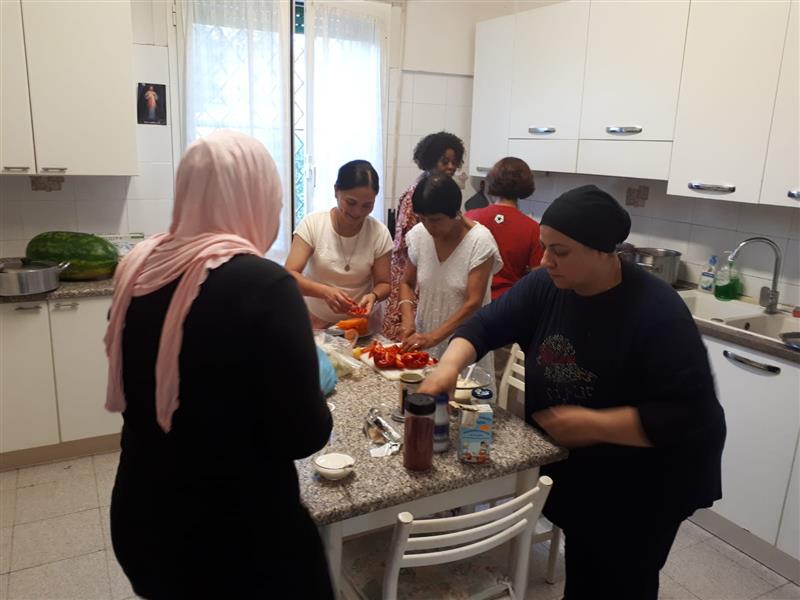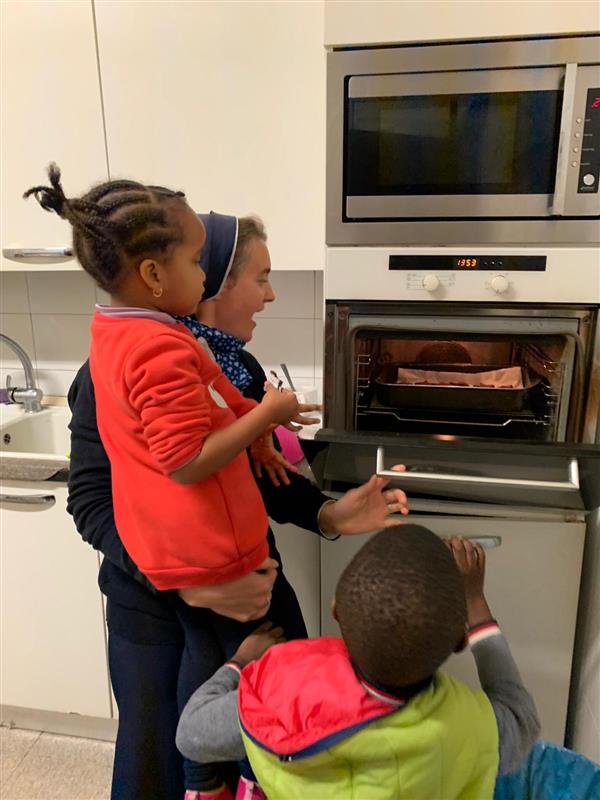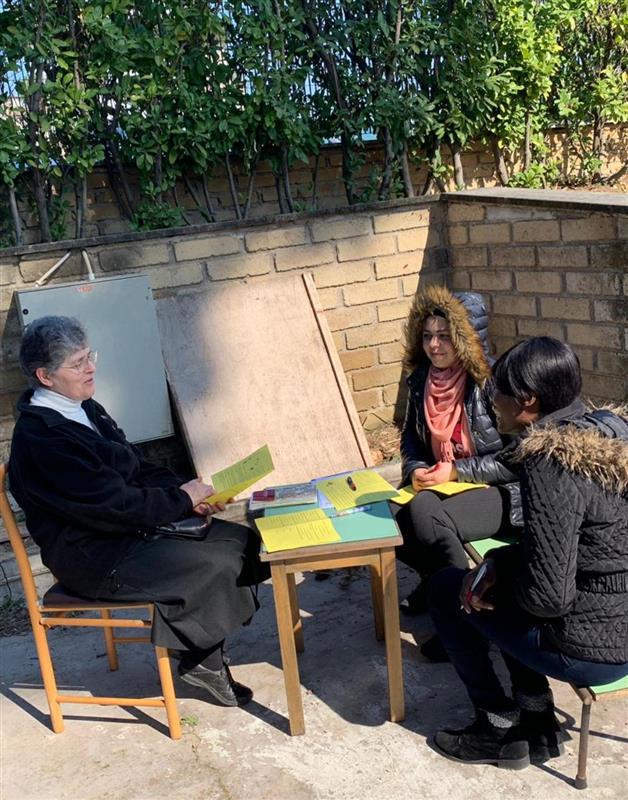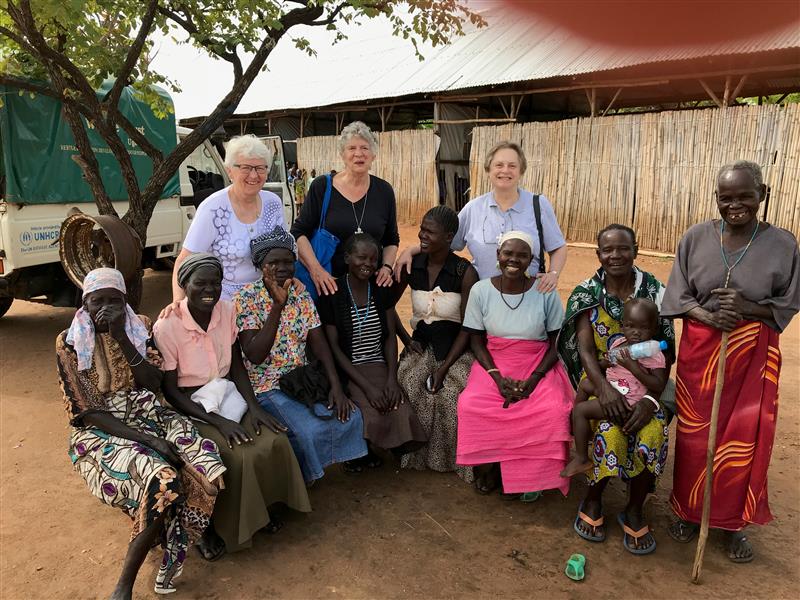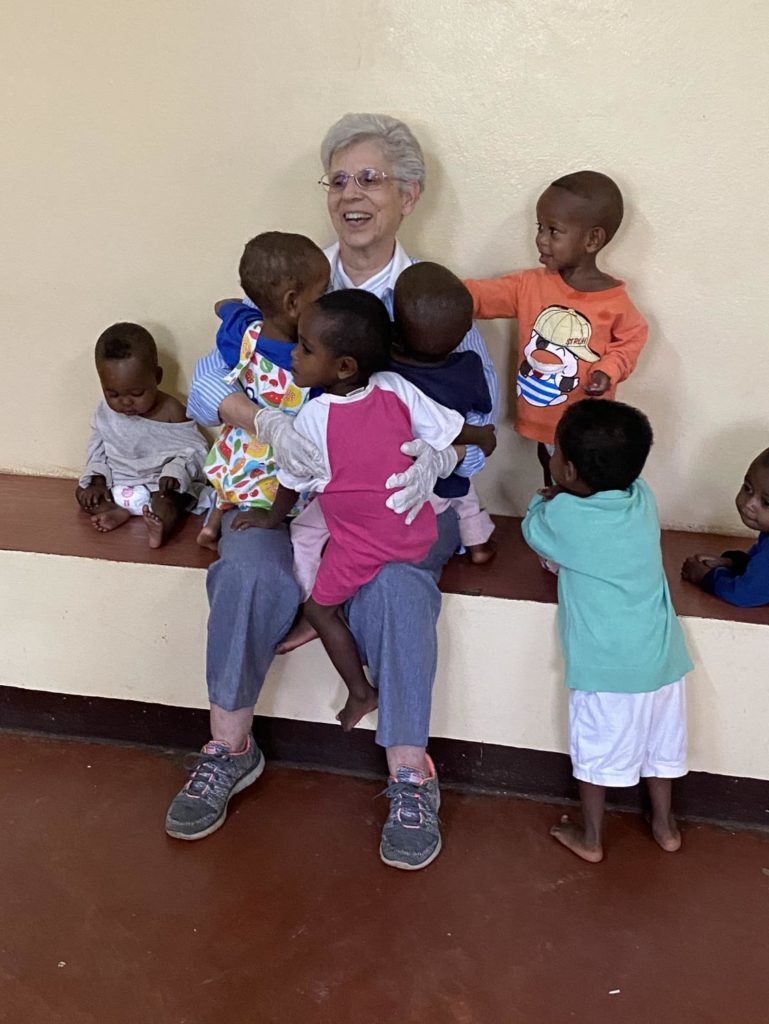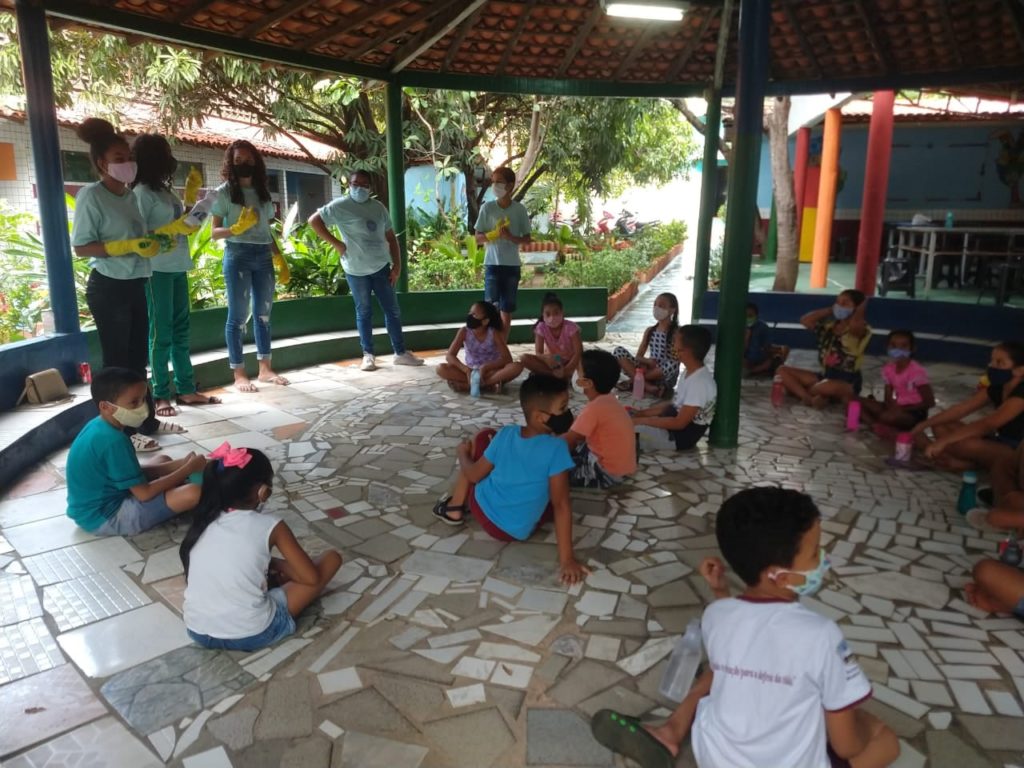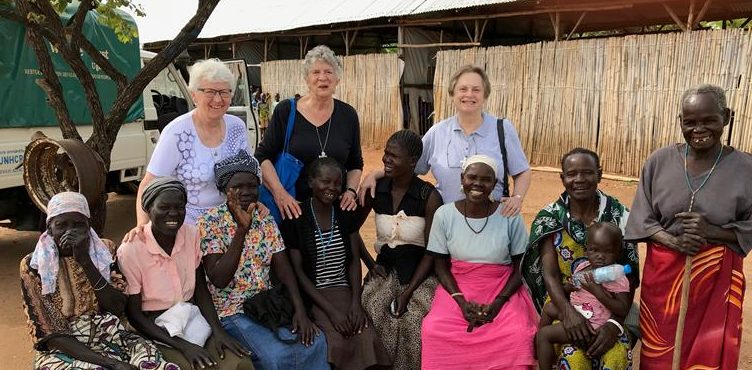Two weeks ago St. Phillips clinic responded to an emergency night call when a 39-year-old mother of seven reported to the clinic with a fractured leg and bruises covering her face. Cabrini staff at St. Phillips provided her medical attention and her wounds improved over days. In a recent follow-up visit, she reported that her injuries were a result of a violation by the unemployed father of her children. Her husband who lost his job 4 months ago, returned from drinking a local brew to demand meat instead of the beans stew that had been prepared and offered to him. When his wife, who is a laborer in a sugarcane field earning less than $60/month explained that she could not afford meat, he beat her, resulting in her injuries.
Gender-based violence (GBV) is a worldwide scourge that knows no boundaries. Women in every country and in every socio-economic status are impacted. This situation has been potentiated by the various lock down measures throughout the world due to the COVID-19 pandemic. United Nations data shows that during COVID-19 lockdowns, many women and girls have been isolated in unsafe environments where they are at heightened risk of experiencing intimate partner violence. Around one third of women worldwide have experienced physical and/or sexual violence by an intimate partner; and 18% have experienced such violence in the past 12 months. In the most extreme cases, violence against women is lethal, and globally an estimated 137 women are killed by their intimate partner or a family member every day. And yet women have been so critical in the fight against COVID-19, in the role of health care workers, educators, caregivers, and other frontline workers.
Systems of prevention must be ramped up that allow all women in all countries and cultures to be recognized for their inherent worth and dignity. Girls must be educated, given equal opportunities in the workplace, and have their safety protected by civil authorities.
It is now more urgent than ever that lockdown requirements are eased with strengthened COVID-19 preventative strategies to enable vulnerable women that continue to be exposed to GBV to access essential services including counselling, legal and psychosocial support. In addition, women have to be amongst the priority groups to access the vaccine.
The Missionary Sisters of the Sacred Heart of Jesus raise our voice against this violence against women and commit all of our works throughout the world to implement processes of protection and advocacy on behalf of the safety of women (Sister Barbara Staley, MSC).
We MSC are passionately at work on the promotion and realization of women’s rights in many different ways. In Brazil for example, with the project “All for One”, which serves adolescents, with the aim of forming young people who work towards the protection, dignity and freedom of girls and women in their community. These adolescents are engaged on topics related to health, education, income, violence and unemployment. Our response to this social urgency is precisely to provide a more efficient service of prevention and attention to GBV.
Programme Lc13,10-13 (recalling the passage in St Luke’s Gospel in which Jesus straightens the bent woman), Programme Talitha Kum and Programme Healthy Families, are the three names of the projects carried out in Guatemala in the Dispensario San José, a health facility located in a marginalized area of the country where violence, exclusion and oppression suffered by women and children are unfortunately very frequent. Together these three programmes take a holistic approach to supporting women by: fighting for their dignity and giving them opportunities to access economic independence; providing their children 4 to 14 years old with comprehensive health care; and providing basic psychological care to the whole family.
In Eswatini, Faith-Based Organizations (FBOs) that are community-based, like Cabrini Ministries, provide much needed services to victims of gender-based violence including short-term shelter, counselling services and psychosocial support. In addition, Cabrini Ministries continues to be a voice for the vulnerable and exploited in seeking for their justice and offering them love and care. In the midst of a pandemic, our call is for FBOs such as Cabrini Ministries to be supported with much needed Personal Protective Equipment (PPE) and other resources, to effectively respond to emerging and ongoing epidemics of GBV.
Another avenue that makes it possible for us to support and strengthen efforts to promote girls and women’s wellbeing is through our impact investing arm where we use our temporal goods on behalf of mission. Here we look to address women’s personal economic and financial empowerment as a solution towards either providing women a stronger voice in decision making on family spending priorities (which results in amongst other effects on the improved education levels for children), or economic independence to leave a potentially dangerous situation at home. We look for partner financial education and service providers that embody a safe and inviting environment for women to work in, especially in contexts where cultural norms may assume that a woman should not have financial privacy, ownership in a family business, or control over her personal earnings and savings.
Among our approved impact investments we have seen the following successes:
- A nonprofit that works with small businesses in Kenyan refugee camps ensures at least 50% of its financial service officers are women. This has led to an increased participation by women in the community in the organization’s education and loan programs.
- An agricultural investor placed increased focus on working with smallholder farmer cooperatives that support women farmers. This enables these women to gain land titles for their coffee farms, receive childcare, education and health services from the cooperative.
- One impact investing fund only invests in organizations that are run by a majority female team.
We are proud that one third of the companies we invest in under our impact investing are led by women, although we are looking to increase this figure.
We hope these examples may serve as a call to the entire Cabrinian world, and our readers, to continue to take undertake their work with a gendered-focused lens, aware not only of the struggles and suffering many woman face, but of the potential and power we unlock for families, communities and the world, by protecting, celebrating and building-up women.
As we remember the inspiration of our foundress St. Francis Xavier Cabrini, a Mother to so many, let us continue to bear the love of Christ in this extraordinary way in these very challenging times. As we join hearts and hands globally, together we can be effective by praying, by financially supporting organizations, by looking out for women who may be in distress, by putting pressure on those responsible for implementing the UN Convention on the Elimination of all Forms of Discrimination Against Women (CEDAW), and by working in our countries towards achieving the relevant Sustainable Development Goals which promote gender equality and empowerment of girls and women.
Thanks to Sister Barbara Staley, MSC General Superior; Petra Vujakovic on behalf of the the Impact Investing team; Mr. Phesheya N. Vilakati, Director, Cabrini Ministries Africa; Sr. Roseni Terezinha Gonçalves, Brazil; Sr. Maria Elena Plata Alvarado MSC, Director, Mother Cabrini Clinic, Guatemala; Sr. María Concepción Vallecillo MSC, Director, San Jose Clinic, Guatemala.
